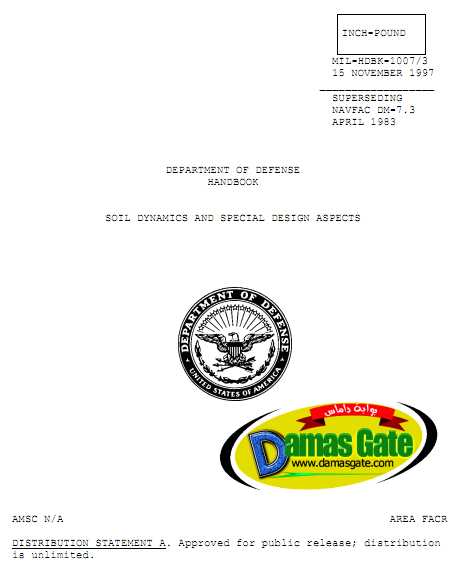Soil Dynamics And Special Design Aspects

1.1 INTRODUCTION
Section 1: SOIL DYNAMICS
1.1.1 Scope. This handbook is concerned with geotechnical
problems associated with dynamic loads, and with earthquake
related ground motion and soil response induced by earthquake
loads. The dynamic response of foundations and structures
depends on the magnitude, frequency, direction, and location of
the dynamic loads; the geometry of the soil-foundation contact
system; and the dynamic properties of the supporting soils and
structures. Dynamic ground motions considered in this chapter
are those generated from machine foundations and impact loading.
An example calculation of vertical, horizontal, and rocking
motions induced by machinery vibration is included. Soil
compaction resulting from dynamic impact and dynamic response
induced by impact loading on piles are also included. An example
calculation of dynamic compaction procedures for soils and an
example of pile driving analysis are included.
Elements in a seismic response analysis are: input
motions, site profile, static and dynamic soil properties,
constitutive models of soil response to loading, and methods of
analysis using computer programs. The contents include:
earthquake response spectra; site seismicity; soil response to
seismic motion, design earthquake, seismic loads on structures,
liquefaction potential, lateral spread from liquefaction, and
foundation base isolation.
Some special problems in geotechnical engineering
dealing with soil dynamics and earthquake aspects are discussed.
Its contents include: seismic design of anchored sheet pile
walls, stone columns and displacement piles; and dynamic slope
stability and deformations induced by earthquakes
1.1.2 Related Criteria. Additional criteria relating to
dynamics appear in the following sources:
Download
http://s18.alxa.net/s18/srvs2/02/001...gn.Aspects.rar